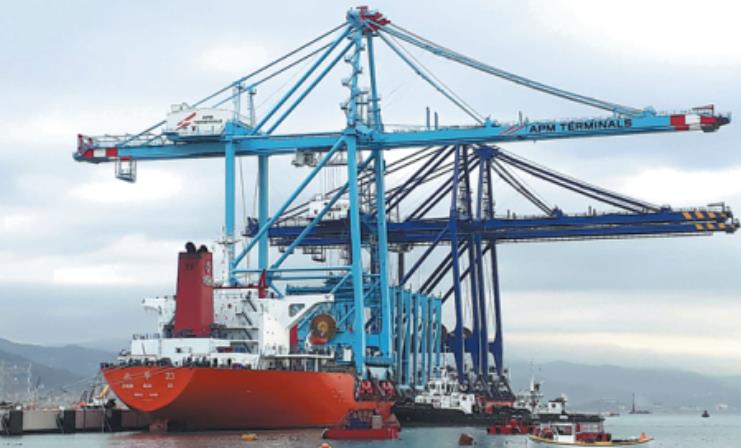Chinese investors revive Italian port


The bonds between China and Italy can be traced back over seven centuries to Venetian merchants and the explorer Marco Polo's trailblazing journey along the ancient Silk Road to China.
Continuing the tradition, Italy earlier this year inked a memorandum of understanding with China on the Belt and Road Initiative, which aims to bring the world closer through infrastructure improvement and other efforts.
Noting Italy is the first country of the Group of Seven to sign such an agreement, Gian Enzo Duci, a professor at the University of Genoa and president of the Italian National Federation of Ship Brokers and Agents, said: "Moving on that line, there will be a lot of cargo in the present and the future (through Italy). And if we are able to update and upgrade our road and rail infrastructure, we can be the Chinese door to central Europe."
Cisco Wang, the representative of COSCO Shipping Ports in Vado Ligure, said his company will expand investment along the Belt and Road in a win-win spirit.
China is Italy's largest trading partner in Asia, with bilateral trade growing 9.1 percent to $54.24 billion last year.
The ongoing construction in Vado Ligure is the largest program for Italian ports.
"Chinese investments, like the one in Vado Ligure, are necessary; if we want to develop a certain area, we need to welcome these investments. We can't stop progress," said Giancarlo Vinacci, deputy mayor of the nearby city of Genoa, which boasts Italy's busiest port.
Last year, Genoa's Morandi Bridge collapsed, reflecting an urgent need for Italy to improve infrastructure.
Li Shaofeng, counselor of commerce at the Chinese Consulate-General in Milan, said the two countries have seen great potential for cooperation in infrastructure construction, since China has financial resources and technical expertise and that's exactly what Italy needs.
Paolo Firpo, container operation manager at APM Terminals, said the biggest change at the port has been the transformation from a family port business to a multinational business.
"It is clear that the involvement of Maersk and COSCO has brought an upgrade of the port; the fact of working with a different culture and different methods has brought a professional upgrade that I find exiting," he said. "We have the operational and commercial aspect, where we have seen positive indications."




































